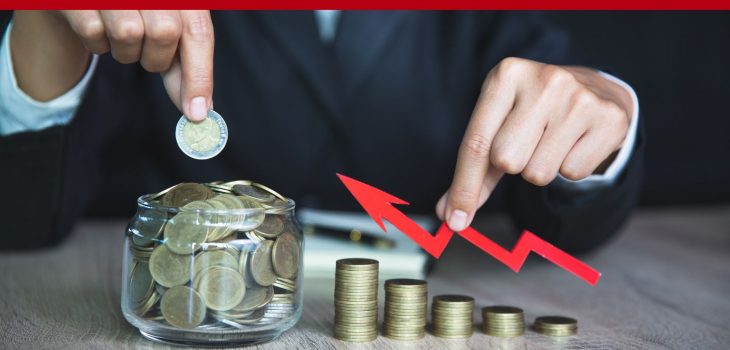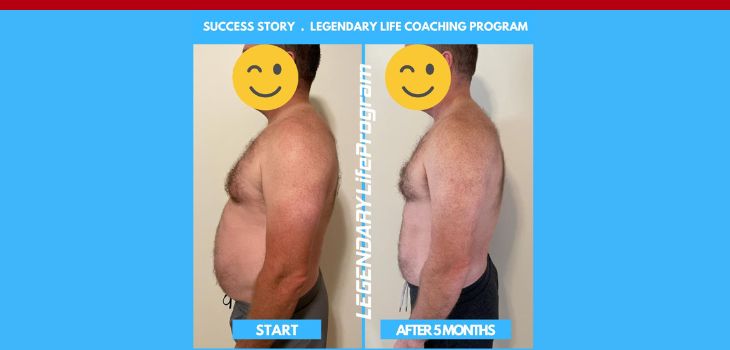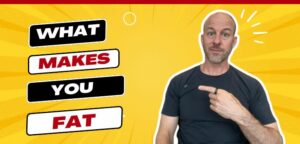In this new 5-part series called “Make 2023 Your Best Year Ever”, Ted will address the biggest diet problems that stop you from losing weight, reclaiming your health, and creating the body you deserve in 2023.
In part 1, Ted explains why after years of trying and failing, most people believe it is not possible to get in shape or it’s too late.
He is going to reveal how to crush self-sabotage, how to address and change the core beliefs that keep you trapped in an unhealthy loop, and how to deal with the part of you that believes you can’t be fit and healthy if you’re over forty, have a business or a career to grow, and have loved ones to take care.
This series is based on 22 years of experience, including real-life strategies developed, tested, and refined while working with hundreds of high achievers who want to lose fat and transform their bodies while growing their businesses or careers. Tune in so you can make 2023 your best year ever!
>>>Click here to listen to part 3
>>>Click here to listen to part 3
>>Click here to listen to part 4
>>>Click here to listen to part 5
You’ll learn:
- “Why I can’t lose weight?”
- How Ted dealt with his self-sabotage behavior in the past
- Why failing at losing weight triggers people so badly
- What is cognitive behavioral therapy, and how it works
- How most people react when tired of the weight loss trial and error
- Five facts about core beliefs
- Why do you need to change the core beliefs that are not serving you
- And much more…
Related Episodes:
484: How To Make 2022 Your Best Year Ever with Ted Ryce Part 1
485: How To Make 2022 Your Best Year Ever with Ted Ryce Part 2
486: How To Make 2022 Your Best Year Ever with Ted Ryce Part 3
Links Mentioned
Schedule Your 15-Min Strategy Call NOW and Unlock Your SPECIAL HOLIDAY bonus
Watch My FREE Body Breakthrough Masterclass
Want To Lose Fat, Transform Your Body & Live Your Best Life In 2023?
The 2023 enrollment for the Legendary Life Coaching Program is OPEN!
If you sign up in the next five days, you’ll get a special bonus: 2 Extra Weeks for FREE, so you can get started right away and already have results before Christmas.
All you have to do is schedule a 15-min strategy call and you’ll lock in your SPECIAL HOLIDAY bonus.
Go to legendarylifepodcast.com/apply and schedule your 15-min strategy call with me.
Hurry up because we only have 8 spots available for group coaching and 3 spots available for private coaching!
Let’s make 2023 the year you’ve created the body you always wanted.
Podcast Transcription: Make 2023 Your Best Year Ever: Part 1: Feeling Like A Failure
Ted Ryce: Does this sound familiar? You embark on a weight loss journey. You want to change your body. You're doing everything right—at least you think, and then you step on the scale and there's no change on the weight. Or even worse, the scale number goes up. What do you do? If you're like most of my clients, you start having these negative thoughts pop up.
“Oh, I knew it wasn't going to work for me. Oh, there's something wrong with my body. I have menopause. Women with menopause can't lose weight,” or “I have low T,” if you're a guy. Men with low T, they need their hormones fixed before they can lose body fat. Or my metabolism's broken. The list goes on.
And what happens after that? You give up. And if you don't give up, you certainly try less hard because you're demotivated, you're depressed, you're angry. Does that resonate? Because if it does, we're going to be talking about how to crush that self-sabotage today.
What is up, my friend? Welcome to the Legendary Live podcast. I'm your host, Ted Ryce, health expert and coach to entrepreneurs and busy professionals. This is going to be our first episode in the five-part series, “Make 2023 Your Best Year Ever.” And what are we going to be tackling today? Well, we're going to be tackling the number one issue that I see, not just my clients have, but most people have. They just don't believe that it's possible for them to change their body, to lose the fat, to keep it.
And I want to start this conversation off by sharing. I've been there. I've shared this story before, so forgive me if you've heard it, but I'm 45 now. When I was 35, I had a health issue. I was 210 pounds. My body fat was 24%. My hemoglobin a1c and my fasting glucose were at pre-diabetic levels, and I felt terrible.
And I said to myself, “Why is this happening to me? I'm doing everything right. I'm pushing myself with these hard workouts. I'm eating low carb. I'm spending a lot of money on high quality food. This shouldn't be happening. There must be something wrong with me. There must be something wrong with my body.”
And the first thing I thought might be wrong with my body is my metabolism. And if you haven't heard this part of my story before; when I was in my twenties, I was a personal trainer in Miami. And I worked with celebrities like Robert Downey Jr, like Richard Branson, Ricky Martin, Pauly Shore, if you know who that is.
And I worked with a lot of people in the club industry, so people who you wouldn't know the name of, but they own clubs and restaurants in Miami Beach. So, I went out a lot. I smoked a lot of marijuana. I drank a lot of alcohol, and I took ecstasy. I don't want to say every weekend, but I took it quite a bit during that time, as did everyone else who was at the club in Miami Beach in the late 1990s and early 2000’s.
And about 10 years later, I'm finding myself struggling with fat loss and I think, you know what? Maybe I stayed up too many nights. Maybe I did too many drugs. Maybe I drank too much alcohol. Maybe it fried my metabolism. Now did I really know, did I read any research saying, “Hey, drug use 10 years ago can affect your metabolism?”
No, I was just thinking and trying to figure out a solution. Trying to figure out a reason, actually, why I was struggling so much. And then somehow my thought shifted away from my metabolism and to my hormones because I started following someone who I don't follow anymore at all. And he was talking about hormones for men especially testosterone it.
And I thought, you know what, that's got to be it. It's not my metabolism. It’s my hormone levels, it's my testosterone, it's my DHE, it's my estrogen. They must be totally out of whack. And you know what? I had a hormone test done. Actually, did a hormone test, then had that individual interpret my results, even though he wasn't a doctor and had no formal training with hormones.
And my testosterone was normal and my estrogen was a little bit high, and some of the other hormones that were tested were also normal, so no answers there. Just a little bit high estrogen might have explained why I was so emotional, because if you're a man, you need estrogen, but you want it to be the right amount.
And then something else happened. I forget how, but I started to challenge myself. I said, “You know what? I must be missing something here.” I started challenging what I thought I knew. I said, “You know what? I’ve got to check my ego. Although I've been in this industry over 10 years now, over a decade now, I must be missing something.”
So, I bought a rapid fat loss plan from the internet, and you know what? It got me down from 210 to 200 pounds. I lost 10 pounds pretty quick, and I was like, “Whoa, that was amazing.” And it happened fast. It happened in a month or less, three to four weeks. And then I hit another plateau and the rapid fat loss plan stopped working.
So, I hired someone to do a meal plan for me, and it was like 2000 calories, and I started following it and boom, I got results again. I got under 200 pounds, around 195. I think I lost another five pounds, but the real shift happened for me when I hired a coach in 2019. I got serious.
I was like, “You know what? I'm traveling the world now. I want to get in shape.” I'm having this—I feel stuck at about 17% body fat. It was like 17 or 18% body fat when I took the body fat test in Thailand. I hired a coach and for six months we worked together and I actually got sick for one of those months.
I got dengue fever in Thailand, and even through dengue fever, where I was in bed and going to the hospital every day to have my white blood cell count checked. So, I was not in good shape for that month, but even through that, I ended up achieving the results that you see on the thumbnail on this podcast, that ripped photo, that is a professional photo, folks, but that is not—and he probably used photoshop to help my hair look better or the lighting, but my body is not photoshopped at all.
That was my body, that's what I achieved from working with my coach. And what I did—before I get onto what I see in other people, I want to share this with you. I shifted from not believing it was possible and coming up with all these really excuses and reasons.
It wasn't like I was trying to say it couldn't be done, but I was figuring out there must be a reason why it's not happening, to finally hiring a coach. You know, after getting the rapid fat loss plan and the meal plan. I hired that coach and got those results. Now I know that it's a hundred percent possible, not just for me, but for everyone.
In fact, I've helped people from all ages, from people in their twenties, to people in their seventies lose fat and build muscle. And the biggest thing that I see from people now, even from my clients, is that they don't believe it's possible. Even when they commit to my coaching program, they invest in months of coaching, they don't believe it's possible. I need to show them that it's possible or they don't believe it's possible to lose the weight and keep it.
They think they're going to have to live a lifestyle that's impossible to keep up. But neither of these are true. But I can't just tell you, “Hey, it's not true,” because where this is coming from is somewhere deep inside you. And I started asking, well, where is it coming from then? Where is this deep place? Where do these beliefs come from?
And before we get into that, I want to ask you, did that example that I gave at the beginning of the episode resonate with you? You step on the scale after doing everything right for a week and there's no change, or maybe you're even up a pound. And I want to ask you, what is the thought that comes up for you?
If you're like most of my clients, you're thinking, I knew this wasn't going to work. Of course I didn't lose weight. Why am I even bothering trying, or, my body is different. It's not like that other person's body. It's not like Bob's body. It's not like Sally's body. There's something wrong with me. That's the negative thought.
And then how does it make you feel? Well, again, if you're like most of my clients, you feel depressed, you feel defeated, you feel angry. But most importantly, what happens with your behavior? For a lot of people, that's the moment that they quit altogether.
Here's the thing about these thoughts that pop up. They're automatic. They pop into your head without you doing much of anything. You see the number, boom, the thought comes up, and I've always wondered where do these thoughts come from? And after being in this business for almost 24 years now, I finally stumbled upon the answer a few years ago.
Actually, I want to rewind a little bit more. Maybe 10 years ago I started realizing, let's say eight years ago, seven, or, yeah, around eight years ago, I started realizing I can't just show my clients what to do. There's a huge psychological component to changing behavior, to getting success.
Everyone…It’s so funny, folks, listen this, everyone thinks I'm like, “Okay, lift weights and track your calories, that'll be a few thousand dollars, please.” Everyone thinks that's what I do. My friend, I do share strategies and some strategies are better than others, and my strategies are quite good and better than 99.9% of the other coaches out there.
Just look at my results, and not just my results now, but the people who've lost the weight and kept it off for a year, for two years or more. But I found that strategies aren't enough. And I started getting into the psychological side of things, and after a few years, I stumbled upon this course on cognitive behavioral therapy.
Now, look, I'm not a psychologist, but I realized that it was going to take a lot more than a workout and macro targets to help my clients achieve success, especially the ones that are really struggling.
So, I started taking these courses and in this particular course on Cognitive Behavioral Therapy, it changed the game for me because what my clients needed help with was to push through the moments that they wanted to give up. They also needed to help find motivation when they didn't feel like trying anymore.
They also had to navigate the stress in their life when they were feeling thrown off their game, right? “Oh, it's not the right time, so I just stopped taking care of my health.” No, you got to give that up. But how? You can't just, if you really don't have the time, you can't do your 90-minute workout. Something has to shift.
So, in that Cognitive Behavioral Therapy course… Well first, let me tell you what, cognitive behavioral therapy is. It's a psychological therapy. You may think of psychologists and think of psychotherapy, and that's sitting down like, “Well…”
And I actually asked some of my clients this maybe five years ago, four or five years ago, I've been asked, “Well, what happened in your childhood? Did you always struggle with weight? What were your parents like?” That's what psychotherapy is. You ask about a person's childhood. And there are important aspects there, but sometimes figuring out what happened in someone's childhood and that their mother always told them to clean their plate and made them feel guilty if they didn't eat all their food.
As an example, that's not what people are struggling with. That may be where it came from, but cognitive behavioral therapy is different. It examines your current struggles, your current behaviors, your current thoughts, your current feelings, and one of the thoughts that it examines is these automatic negative thoughts.
So, let's look at an example for this. Imagine two people who step on this scale and they haven't lost weight after a week. There's person A, what's the automatic thought of Person A? “Of course. I didn't lose any weight. My metabolism is broken, my hormones, why even try? This isn't going to work for me.”
What's the feeling? Depressed or angry? More importantly, what's the behavior? Typically, they give up. Or say, “You know what? It's ruined anyway. I'm just going to keep it up.” Now let's take Person B. They step on the scale. They see they haven't lost weight after week. What is the thought? “Hmm, I did poorly.
I must have been missing something. Or maybe I didn't plan well.” Or if you're my client, you're thinking, “Ah, maybe I'm gaining muscle and losing fat at the same.”
That's what my clients think now, or at least that's what I coach them to think. Some people take a little bit more coaching than others to make that shift, but let's say? D it's not the muscle, the body composition, they're gaining muscle and losing fat thing.
What do they feel? Disappointed. And what's the behavior? Do they give up? No. They plan to do better the next week. So, what's the difference here? My argument to you, and based on my years of experience and then diving into the psychological side of weight loss, it's the core belief is different.
Person A, what do they believe? I'm a failure with weight loss. My body is broken. Person B, what do they believe? There's nothing wrong with my body. I'm perfectly capable when I give my best effort. There is no such thing as a person who can't lose body fat, that doesn't exist.
Who's Person A and Person B? That could even be the same person. That was me. So, it's these core beliefs. And when I struggled, when I told you I was struggling and I looked at my metabolism, thought it was broken, my hormones, etc, I believe that something was broken with my body.
But now, even when I'm struggling, my core belief is I'm perfectly capable when I give my best effort. I must be missing something. I'm overeating calories. I'm not tracking as well as I should be. Or maybe I'm doing pretty well nutritionally, but I'm not in the gym working out as consistently, especially when I travel a lot.
My body changes when I don't keep up my workouts and it changes quick. And here's what I can tell you about core beliefs. Here are some facts. Fact number one, people are not born with core beliefs. You learn them somewhere. Fact number two, core beliefs usually develop in childhood or during stressful or traumatic periods in adulthood.
Number three, information that contradicts your core beliefs is often ignored. “Bob lost weight, but that's Bob. I have a broken metabolism, even though I have no idea what even a metabolism is, and I've heard Ted explain it a bunch of times on the podcast, but I still don't believe it.” So, I'm just kidding. Ignore that.
Fact Number four, negative core beliefs are not necessarily true, even if they feel. This is something that I've gotten into with women online, women who are post-menopausal. They argue with me aggressively sometimes, and I say it's not the thing, the hormones are not the thing, the menopause is not the thing.
The thing is, menopause may make you feel bad because you're sleeping poorly and feel like crap and maybe struggling psychologically with the changes that are happening to your body. That's all normal, but it's your behaviors that are different. You're drinking more wine because you're feeling bad.
You're eating more calories even though you think you're not. You’re sleeping poorly, your memory isn't even good and you're not exercising as much. That's the problem. It's not the hormones, it's the behaviors. Now, the hormones may affect your behaviors. They may make you feel like not doing the behaviors, but it is the behaviors that is the.
It's the behaviors that are the issue. It's not the hormonal change that's stopping you—may be stopping your behaviors or make you feel like you can't do them. So fact number five. Core beliefs tend to be rigid in longstanding, but they can be changed. You can change core beliefs. Now, how do you change them?
Well, the first thing is to develop awareness of when automatic negative thoughts pop up. Now since we're talking about body transformation, when do they pop up for you? Is it when you step on the scale and you don't see the number that you like? That is probably the number one automatic negative thought my clients deal with.
They step on the scale. The number messes with. They feel bad and then their behaviors change. But do you see how it's the behavior change that is the issue? Because you can feel bad, you can think negative thoughts, you can feel bad, but if you keep pushing forward and do the right thing, you're going to get results.
Because it's not about your feelings, it's not about your thoughts, it's about your behaviors. So develop awareness when those negative thoughts pop. And then when they do, number two is to ask, why do I feel this way? What is the underlying core belief? And number three is, think about when and why that belief started.
Because again, people are not born with core beliefs, they're learned. When did you first learn this, do you think? Is it because you've had multiple experiences where you tried to lose weight and failed? What formed this core belief because you weren't born with it?
And number four is to challenge your belief. Easier said than done. But don't look for confirmation of your belief. That's a cognitive bias called “confirmation bias.” Human beings, we're a little bit messed up. We don't want to challenge our thoughts to see if we're wrong. We want to only get online and Google “hormones stop you from losing fat,” and you'll find so many people saying hormones stop you from losing fat.
You will find plenty of confirmation, especially on Goop Magazine, and other popular but less reputable sources of information. But how about this, instead of googling to confirm your belief. How about Googling to challenge your belief, Google “hormones don't stop you from losing fat.” And read about that.
Challenge yourself. And again, challenge yourself not just by doing that, but challenge yourself by continuing to push forward. Because again, it's not the belief that's stopping you. It's the belief is affecting your feelings, which is affecting your behavior, which is stopping you. Do you see the issue there?
And number five is if you're struggling with this, and you are a person, you have success in your life. You're an entrepreneur, you're a busy professional. You're an attorney like Dan, you're an accounting partner like Barbara, you're a medical doctor in a medical practice like Jeremy, you're a consultant like Aoife, you're commercial real estate, mortgage broker like Trevor, you're an entrepreneur who sold their business like Glen, I can help you with this.
You already have success going for you. We just need to work together to give you better strategies and also so that you learn how to take the growth mindset, the success mindset that you've used to create the success in your life and transfer it over to your health, and that can be done. I've been doing that for 23 years, and I can tell you, I've never been better than right now.
So, if you’re struggling with that and you're looking for help and you're actively taking action trying to solve this, what I'd love you to do is go and book a 15-minute call with me. Go to www.legendarylifepodcast.com. That's the wrong URL. Go to www.legendarylifeprogram.com/apply. That's www.legendarylifeprogram.com/apply and book a 15-minute call.
And what are we going to do on the 15-minute call? We're going to talk about you. We're going to talk about your goals. We're going to talk about what's in the way of you achieving your goals, and we'll come up with a blueprint to get you to them faster than you thought was possible.
And if you feel and I feel like it's a good fit, we'll talk about working together. And if you work together with me, I'll be putting you through the same successful strategy and psychological coaching that I use with my most successful clients. Actually, all my clients, not just the most successful ones, and all my clients get results.
Different levels of results, for sure, because they're dealing with different challenges, but they all lose 20 to 30 pounds in four-month period. So if that sounds like something you want, www.legendarylife program.com/apply. So that is it for Episode one, and I want to ask you, what is the big takeaway? What's the big takeaway from today?
And I want to also tell you what's coming up next. We're going to be talking about: “Dealing with The Underlying Reasons Why You Overeat.” That's going to be Episode Two. So, hope you enjoyed this one a lot and looking forward to speaking to you on the next episode. Have a great one, and speak to you then.
Sign up to receive email updates
Enter your name and email address below and I'll send you periodic updates about the podcast.









